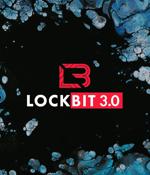Security News

Taiwanese chip maker ADATA denies claims of a RansomHouse cyberattack after the threat actors began posting stolen files on their data leak site. The RansomHouse gang added ADATA files to their data leak site on Tuesday, claiming they stole 1TB worth of documents in a 2022 cyberattack.

The Australian Federal Police has arrested a 19-year-old teen from Sydney for allegedly attempting to leverage the data leaked following the Optus data breach late last month to extort victims. Details of the scam were previously shared by 9News Australia reporter Chris O'Keefe on September 27, 2022.

The Australian Federal Police have arrested a 19-year old in Sydney for allegedly using leaked Optus customer data for extortion. More specifically, the suspect used 10,200 records leaked last month by the Optus hackers and contacted victims over SMS to threaten that their data would be sold to other hackers unless they paid AUD 2,000 within two days.

Russian retail chain 'DNS' disclosed yesterday that they suffered a data breach that exposed the personal information of customers and employees. While the firm has not provided details on what information was compromised, it clarified that the hackers didn't steal user passwords and payment card data, as that data isn't stored on their systems.

The relatively new Bl00Dy Ransomware Gang has started to use a recently leaked LockBit ransomware builder in attacks against companies. Last week, the LockBit 3.0 ransomware builder was leaked on Twitter after the LockBit operator had a falling out with his developer.

The LockBit ransomware operation has suffered a breach, with an allegedly disgruntled developer leaking the builder for the gang's newest encryptor. After security researcher 3xp0rt shared the tweet about the leaked LockBit 3.0 builder, VX-Underground shared that they were contacted on September 10th by a user named 'protonleaks,' who also shared a copy of the builder.

"Its possible i could leak more data soon, GTA 5 and 6 source code and assets, GTA 6 testing build," added the individual, who goes by the handle "Teapotuberhacker" on GTAForums. Rockstar Games has yet to comment on any of the claims, but is working on getting the leaked videos removed from YouTube.

Grand Theft Auto 6 gameplay videos and source code have been leaked after a hacker allegedly breached Rockstar Game's Slack server and Confluence wiki.Some of the videos contain voiced conversations between the protagonist and other NPCs. The hacker claims to have stolen "GTA 5 and 6 source code and assets, GTA 6 testing build," but is trying to extort Rockstar Games to prevent further data from being released.

The Yanluowang ransomware group behind the May attack on Cisco Systems has publicly leaked the stolen files on the dark web over the weekend, but the networking giant says there's nothing to worry about. In a blog post, Talos wrote that "We continue to see no impact to our business, including Cisco products or services, sensitive customer data or sensitive employee information, intellectual property, or supply chain operations."

Our previous analysis of this incident remains unchanged-we continue to see no impact to our business, including Cisco products or services, sensitive customer data or sensitive employee information, intellectual property, or supply chain operations. In a report in August, Cisco announced that its network had been breached by the Yanluowang ransomware after the hackers compromised an employee's VPN account.